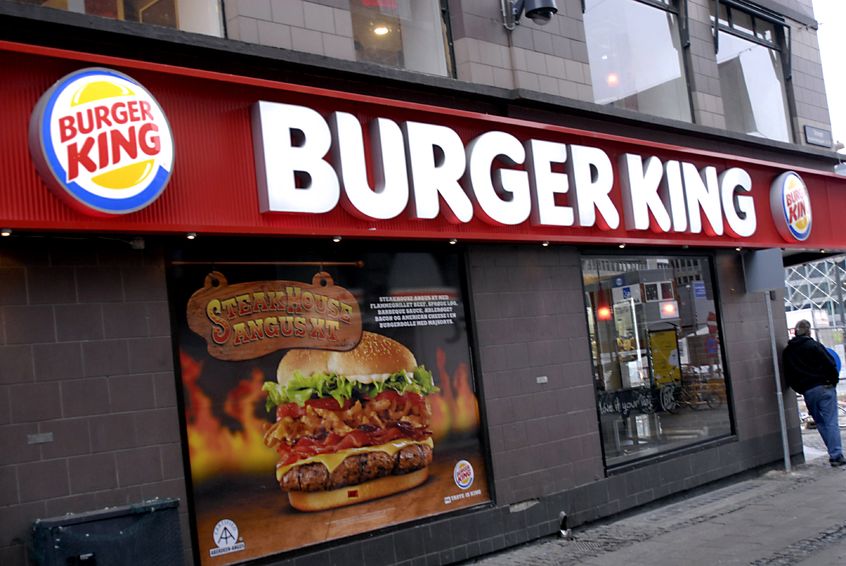
Media Alert
Michael Faulkender Addresses Tax Policy Implications; David Kass Explains Buffett's Stake
COLLEGE PARK, Md. - Finance experts in the University of Maryland’s Robert H. Smith School of Business are available to expand on their comments, below, covering tax policy and investing implications from the Burger King-Tim Hortons merger. The deal involves a tax inversion by Burger King relocating to Canada and its lower -- 26.5- versus 35-percent -- corporate tax rate compared to the United States.
Michael Faulkender: Reform the Corporate Income Tax Code
“Burger King is acting in the best interest of its investors. Instead of calling for boycotts or holding symbolic votes on legislation that will not address the fundamental problem, lawmakers should focus their attention on reforming the tax code such that multinational corporations want to be headquartered in the United States.
“With the highest corporate income tax rate among OECD nations and the double taxation of international operations, the United States with its tax code has made itself increasingly uncompetitive as we vie for companies to locate and to expand operations here.
“The solution is to bring the tax rate in line with other advanced economies, paid for by reducing credits, deductions, and other loopholes. We could make our corporate tax environment even more competitive by offering a corporate income tax rate below that of other advanced countries, paying for it by eliminating the lower personal income tax rate on dividends and capital gains.
“Because individuals are relatively less likely to move abroad than corporate subsidiaries, this rate structure would create fewer distortions. A 20-percent corporate rate would place the U.S. below the median rate among OECD nations, and taxing dividend and capital gain income for individuals at the same rates as normal income would eliminate some of the tax arbitrages created by differential tax rates for the same taxpayer.
“Since all income eventually is taxed at the corporate rate and again at the individual rate, this proposal is revenue neutral in a static sense. Longer term, it would raise revenue by creating incentives for incremental, long-term domestic investment.”
Faulkender, co-author of the working paper Taxes and Leverage at Multinational Companies, is an associate professor of finance and director of the Smith School's Masters Program in Finance. Contact him at 301-405-1064 or mfaulken@rhsmith.umd.edu.
David Kass: Buffett Confident in 3G Capital’s Control; Burger King Deal more about Growth than Tax Inversion
“3G Capital of Brazil owns 70 percent of Burger King and will have operational control over the merged firm. Warren Buffett and 3G Capital jointly purchased H.J. Heinz in 2013. Buffett has praised 3G Capital for their outstanding ability to cut costs and seek growth opportunities through acquisitions. He had previously mentioned that he looked forward to joining with 3G Capital in future deals.
“As part of the $12.5 billion financing to fund the cash portion of the acquisition of Tim Hortons, Buffett through Berkshire Hathaway will be investing $3 billion in a special issue of preferred stock with a coupon of 9 percent. The annual dividend of $270 million will be taxed at 35 percent since it will be paid by a foreign company after Burger King moves its corporate headquarters from the U.S. to Canada. If Berkshire had received this dividend from a U.S company, it would be taxed at only 15 percent.
“This so-called "tax inversion" (switching domiciles from the U.S. to Canada) will result in a Canadian corporate tax rate of 26.5 percent, which is considerably lower than the statutory 40 percent (35 percent federal, plus 5 percent state) in the U.S. However, Burger King currently pays an estimated tax rate of only 27 percent. Burger King CEO Daniel Schwartz said: "We don't expect our tax rate to change materially...This transaction is not really about taxes... It's about growth".
“Burger King said Canada is where it will have 80 percent of its outlets after this deal is completed. Overall, it expects about two-thirds of its revenue to come from Canada, one-fifth from the U.S., and the rest from overseas locations.”
Kass is a clinical associate professor of finance, previously held senior positions with the Federal Trade Commission, General Accounting Office, Department of Defense and the Bureau of Economic Analysis. Contact him at dkass@rhsmith.umd.edu or 301-405-9683.
Media Contact
Greg Muraski
Media Relations Manager
301-405-5283
301-892-0973 Mobile
gmuraski@umd.edu
About the University of Maryland's Robert H. Smith School of Business
The Robert H. Smith School of Business is an internationally recognized leader in management education and research. One of 12 colleges and schools at the University of Maryland, College Park, the Smith School offers undergraduate, full-time and flex MBA, executive MBA, online MBA, business master’s, PhD and executive education programs, as well as outreach services to the corporate community. The school offers its degree, custom and certification programs in learning locations in North America and Asia.